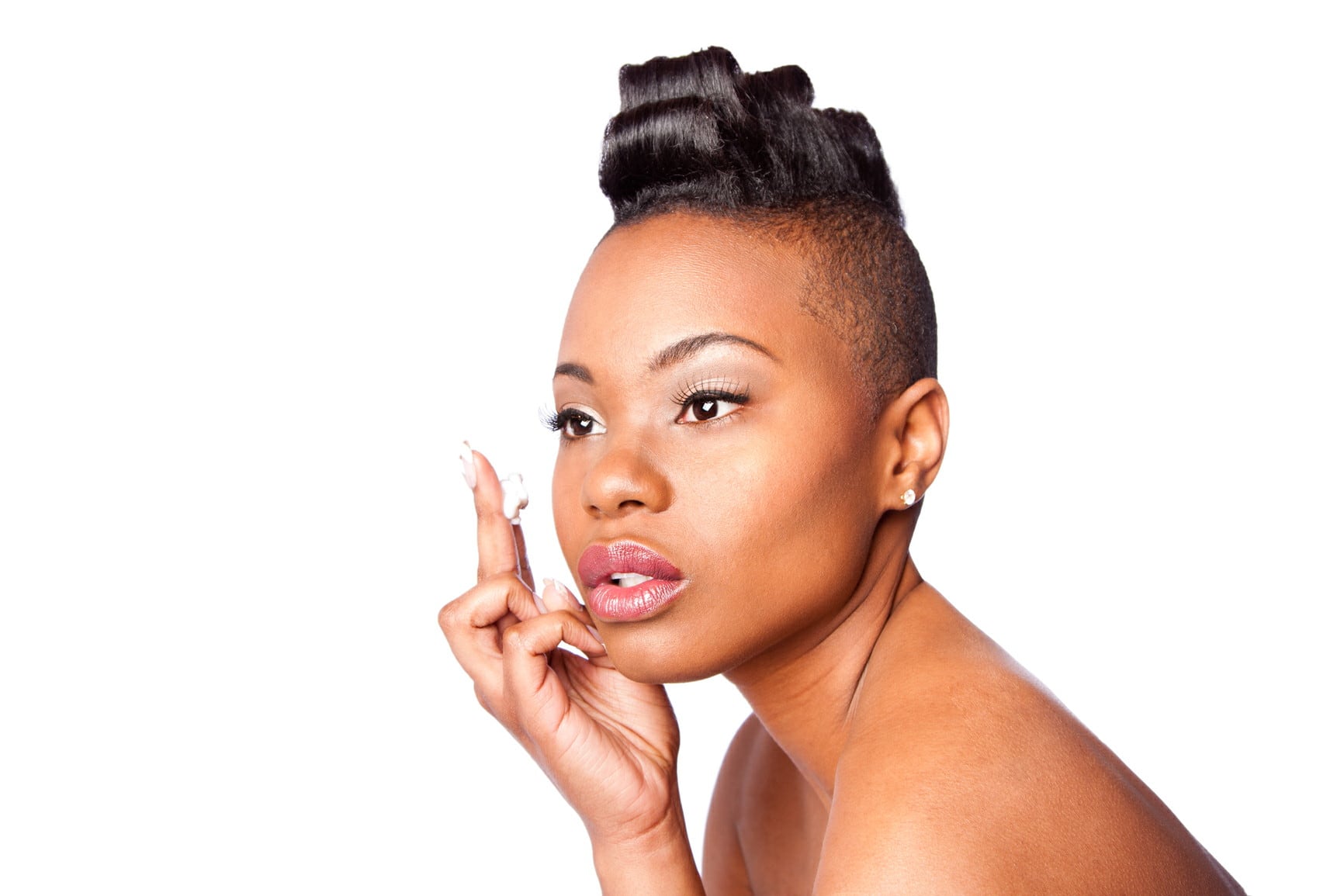
What you think you know about moisturizers and other beauty products might not be totally correct. Find out the truth. (Phakimata/Deposit Photos)
1. If you think a product labeled “hypoallergenic” can’t cause an allergic reaction …
You should know that the hypoallergenic claim isn’t all it’s cracked up to be. Contrary to what the term implies, hypoallergenic products aren’t necessarily tested on rounds of allergy-prone women. At the most, the claim can refer to the lack of irritation caused by the product during repeated use on one specific spot of skin. So if you have allergies or sensitive skin, take heed. Ask for a tester to try a little bit of a product on your skin at home before you buy.
2. If you think all products that claim to even skin tone can fade any discoloration …
You should know that not all fade agents are created equal. This is especially important to consider when we look for magic elixirs that fade dark spots or discoloration on our melanin-rich skin. Why? Many products that claim to even skin tone or brighten skin dislodge superficial discoloration that has settled into top layers of the skin. Age spots and sun damage often fall into this category. Great if that is your issue. But for us, deeper-seated hyperpigmentation due to acne scarring or injury and our extra melanin make dark spots more resistant. If we use these products that target age-related dark spots, disappointment will soon follow. For significant results, our treatment needs to be three-fold: Look for ingredients that inhibit melanin production, such as kojic acid, niacinamide, licorice root extract or vitamin C; exfoliate to bring new skin to the surface; and wear sunscreen to prevent further discoloration.
3. If you think that all body moisturizers are the same …
You should know that we turn to two main categories of moisturizers to smooth and hydrate our bodies — humectants and occlusives. Humectants such as hyaluronic acid and glycerin work by attracting moisture from the air and skin and helping it absorb into the skin cells. Humectants aren’t usually greasy so they are a good pick if you have oily skin. Occlusives, on the other hand, trap moisture into the skin and serve as a protective barrier preventing moisture loss. Think Vaseline. To get the most out of occlusives, apply on damp skin after your shower to seal in moisture.
4. If you think all skincare products have withstood rigid Food and Drug Administration (FDA) testing and are safe for everyone …
You should know that as counterintuitive as it seems, the products on the shelves that we use to peel, exfoliate, lift, brighten and firm our skin aren’t regulated by the FDA. Although you would think that products claiming to alter your skin would have to adhere to some type of guidelines, most skincare products are considered cosmetics, not drugs, and aren’t required to do so. Although the FDA does provide what is equal to “good practices” guidelines, cosmetics do not need to seek FDA approval. Even high-tech cosmeceuticals are exempt. In fact, the term cosmeceuticals isn’t recognized by the FDA. Although respected brands and manufacturers usually have their own testing protocol, be smart about product claims when deciphering fact from wishful thinking.
5. If you think that a long hot shower is just what the doctor ordered during this harsh winter …
You should know that most dermatologists recommend a shower with lukewarm water no longer than 10 minutes; some even say three minutes, tops. Although hot water feels good, it can stimulate a histamine release in your body and make skin itchy. This is especially troublesome if you have severely dry skin or suffer from any type of dermatitis or eczema.
Marcia Caster is a beauty writer and founder of Beauty Beat Box, a beauty samples box for women of color. For more beauty tidbits, follow her on Twitter @marciacaster and visit beautybeatbox.com.








